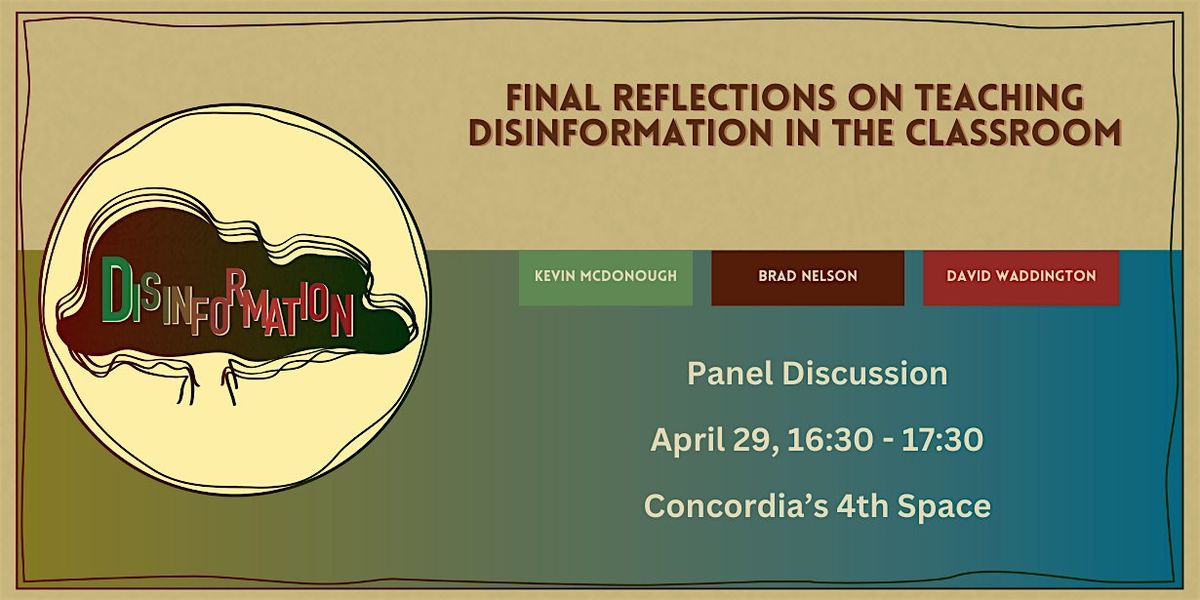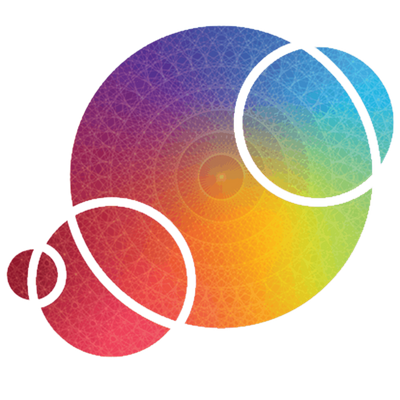
About this Event
For full information about the entire Disinformation conference, .
PANEL 5 : Final Reflections on Teaching Disinformation in the Classroom
Kevin McDonough: The school as the site of anti-disinformation education?
Politically speaking, classrooms have never been a more challenging space to navigate. Students come to school armed with new and ever changing conspiracy theories that they want to share with and provoke their classmates and teachers, anti-vax parents demand that their scientifically suspect views be given air time and respect, teachers who try to give instruction on political tense topics like climate change, respect for gender diverse people, find themselves under fire from local communities and politicians, and when teachers are silenced often students find themselves without access to alternative sources of information as school and neighborhood libraries under political attack. Teachers, parents, administrators find themselves unsure where to turn for insight and strategies to address these problems. In this presentation, I consider the question of whether schools ought to be tasked with addressing these problems. The problem I want to consider has to do with the complex ways in which the nominally liberal-democratic state, which also sponsors and regulates public education systems, is itself increasingly implicated – intentionally or not – in the very processes of disinformation and misinformation that prospective educational approaches would aim to counteract. I suggest that addressing this problem requires us to revisit perennial disputes about the emancipatory potential, or lack thereof, of the democratic state. While proponents of liberal education have traditionally regarded the democratic state – and by extension public schools - as an agent of enlightenment and liberty, critics of liberalism have adopted the opposite view – that state institutions like schools are vehicles of colonialization and oppression. I suggest that recent scholarly insights about the mechanisms and processes by which democratic states are increasingly implicated in spreading misinformation and contributing to disinformation require new ways of understanding the ‘dilemma of democratic public education’. While I do not anticipate offering detailed answers to this problem, my main goal in my contribution to the panel is to help clarify the problem to which answers are urgently needed.
Bradley Nelson: Teaching Cervantes in the Age of Disinformation
Students are often surprised at the fact the disinformation and misinformation are not new phenomena. At the heart of Don Quixote, for example, is a middle-aged protagonist who sets out on a series of quests with a reimagined identity in search of injustices and affronts to set right through his courage, strength, and moral righteousness. At the heart of this chivalric quest is the trauma arising from the affronts he imagines and projects onto the spectral image of Dulcinea, a canonical courtly love figure, i.e., object of desire, that contains and serves as the foundation for his violent responses to perceived challenges to his delusional authority. Don Quijote I and II are in essence pedagogical explorations and indictments of the strategic use of imagined trauma in the perpetuation of violence against the other: sexual, ethnic, linguistics, etc.
David Waddington: Choosing Not to Double-Down on Truth - Towards a New Approach to Fighting Disinformation
In The Postmodern Condition, Jean-Francois Lyotard suggests that “Science, the hero of liberty,” is one of the great metanarratives of Western thinking. The idea, updated for the 21st century, is simple: if people laboring under misinformation are exposed to scientific truth, this truth—once its power and coherence is fully appreciated--will free them from any illusions they had. Given its longstanding prevalence and appeal, it is not surprising that many post-COVID, post-Trump approaches to fighting disinformation take exactly this approach.
The problem, however, is that we have tried this approach many times before, and mostly without success. What is needed are new strategies for combatting disinformation that, rather than doubling-down on exposure to truth, focus more on cultural strategies to build support for it. Drawing on ideas from John Dewey’s A Common Faith, as well as insights from anthropological work on disinformation, I will articulate some first steps in this regard.
Event Venue & Nearby Stays
4TH SPACE, Concordia University, 1400 Maisonneuve Boulevard West, Montreal, Canada
CAD 0.00
